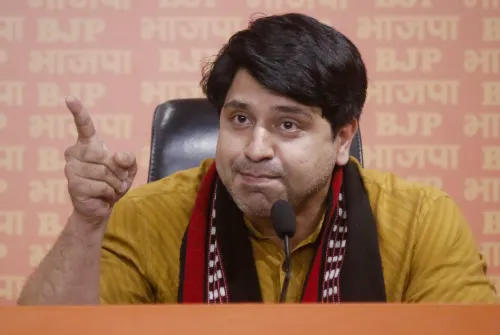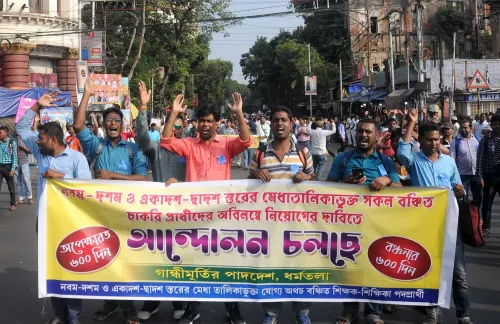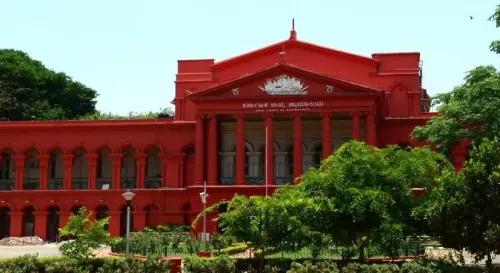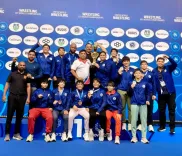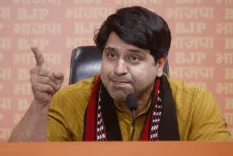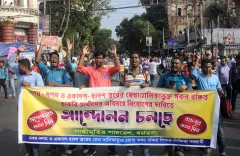Rahul Gandhi Advocates for Caste Census at Patna Gathering, Criticizes RSS-BJP
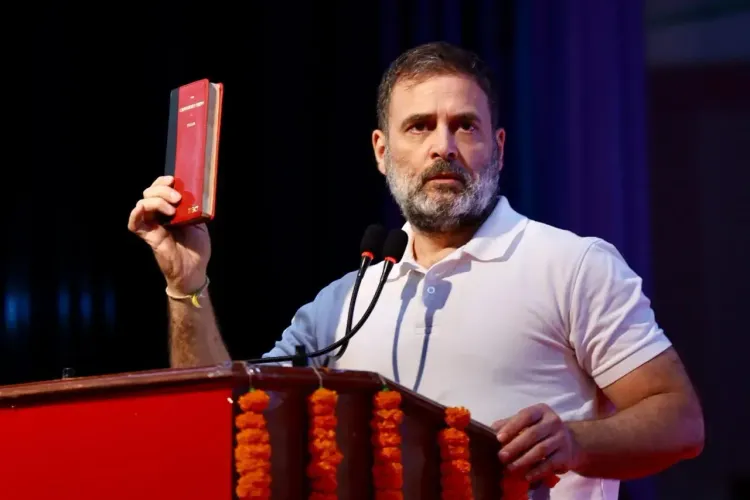
Synopsis
Key Takeaways
- Rahul Gandhi criticized BJP-RSS for opposing caste census
- Emphasized Congress's commitment to social justice
- Highlighted internal reforms in Bihar Congress leadership
- Advocated for a people-centric political movement
- Addressed economic inequality and its implications
Patna, April 7 (NationPress) Senior Congress leader Rahul Gandhi on Monday launched a strong critique of the BJP-RSS leadership, accusing them of resisting a caste-based census and asserting that the Congress would champion social justice by formulating policies grounded in real-world contexts.
Speaking at the Samvidhan Bachao Sammelan at Sri Krishna Memorial Hall in Patna, Gandhi specifically targeted RSS chief Mohan Bhagwat, stating, “Mohan Bhagwat claims there is no necessity for a caste census. I want to emphasize that a caste-based census is akin to an x-ray of society. It unveils the true demographics of the population and assists in devising inclusive policies.”
He referenced the Congress-led caste survey in Telangana as a benchmark, asserting it could transform the political landscape of the state. “We’ve already observed its effects in Telangana. The same transformation is achievable nationwide,” he expressed.
Gandhi also pointed out internal changes within the Bihar Congress, highlighting a new trend in leadership representation. “Previously, two-thirds of our district presidents in Bihar hailed from upper castes. Under Mallikarjun Kharge’s leadership, that dynamic has shifted. Today, two-thirds are from OBC, EBC, Dalit, and Mahadalit communities. We’ve aligned leadership roles with demographic realities,” he elaborated.
Encouraging party members to engage with marginalized communities, Gandhi stressed the importance of cultivating a people-centric political movement. “Bihar has historically spearheaded transformative movements. This time, Bihar will again lead the charge,” he declared.
In a pointed ideological critique, Gandhi stated, “This Constitution is not merely a document from 1947 -- it embodies the values of our ancient civilization. The ideology of Savarkar has no place here; he lacked the courage to confront the truth.”
He commended Dr. B.R. Ambedkar and Mahatma Gandhi for embedding justice, equality, and fraternity within the Constitution. “Ambedkar transformed the suffering of Dalits into rights. Great leaders learn from people’s struggles and translate them into law. That pursuit of truth is ongoing,” he noted.
Reflecting on the current political landscape, Gandhi remarked that fear and silence pervade national dialogue. “It’s challenging to voice the truth these days. People are aware, yet many leaders hesitate to articulate it,” he observed.
He also criticized the widening economic gap, questioning the significance of the stock market for average Indians. “The US President sneezes, and the stock market dips. But how many of you are investors? Less than 1 percent of Indians. It’s not your instrument -- it’s a playground for the affluent,” he stated.
Rahul Gandhi’s visit is part of the Congress’s intensified strategy in Bihar as they prepare for the 2025 Assembly elections, aiming to reclaim lost ground with a renewed emphasis on social justice and organizational renewal.
After a full day of activities, Rahul Gandhi departed for Delhi.

